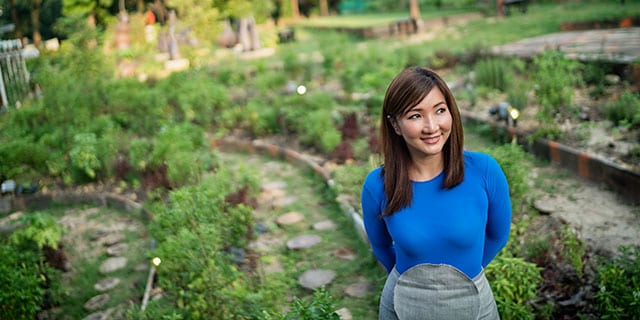Leftover Food? Feed It to a Fly
Leftover Food? Feed It to a Fly
Small in size but big in appetite – the black soldier flies could be the future of food waste disposal.
Two generations ago, when Singapore was dotted with animal farms and kampungs, food scraps was often used as feed for livestock. It was part of the meal cycle – leftovers were fed to farm animals, which would eventually end up as food on the table.
Now, high-rise buildings stand where farm animals used to roam. And with growing affluence, Singapore is now producing more food waste. In 2016, the city produced almost 800,000 tonnes of food waste – equivalent to 134,000 African bush elephants, the largest land animal that weighs about 6 tonnes.
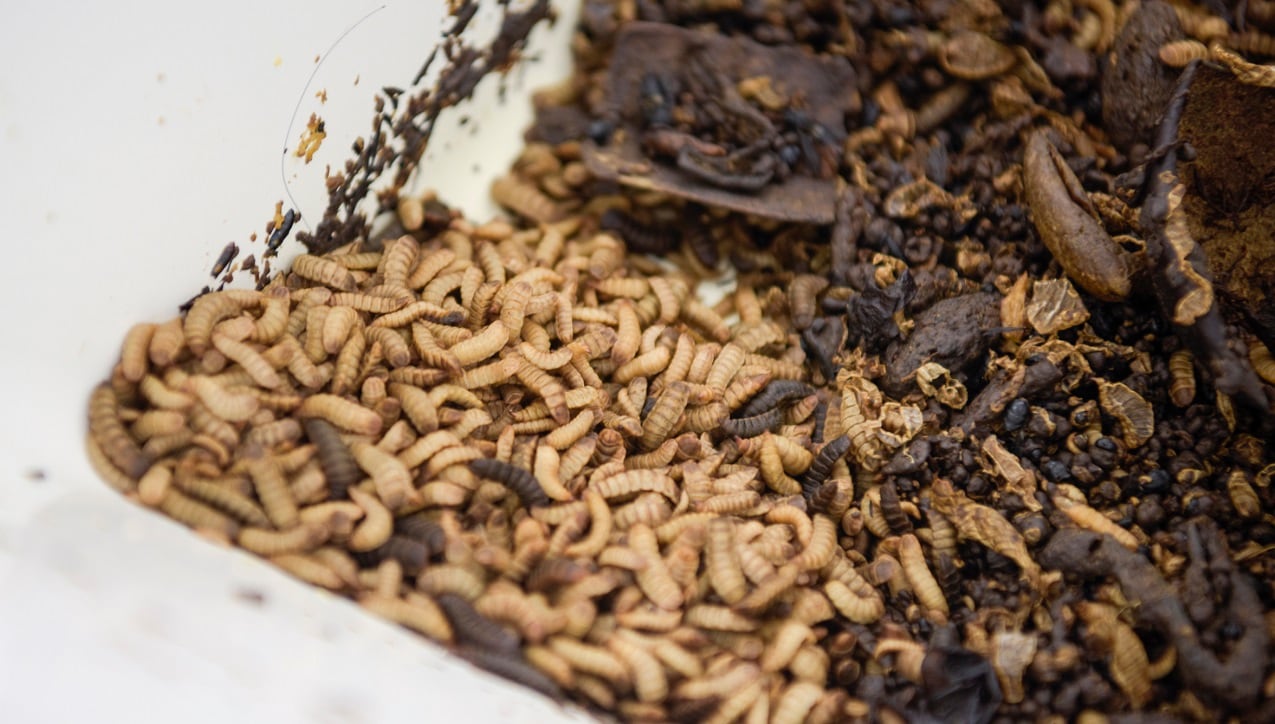
Black soldier fly maggots feeding voraciously on food waste.
These leftovers are now collected and burned. But a group of young urban farmers, and biological science professors from the National University of Singapore (NUS), think it is a waste of energy. The two groups want to tackle the food waste problem with help from an unlikely assistant – black soldier flies.
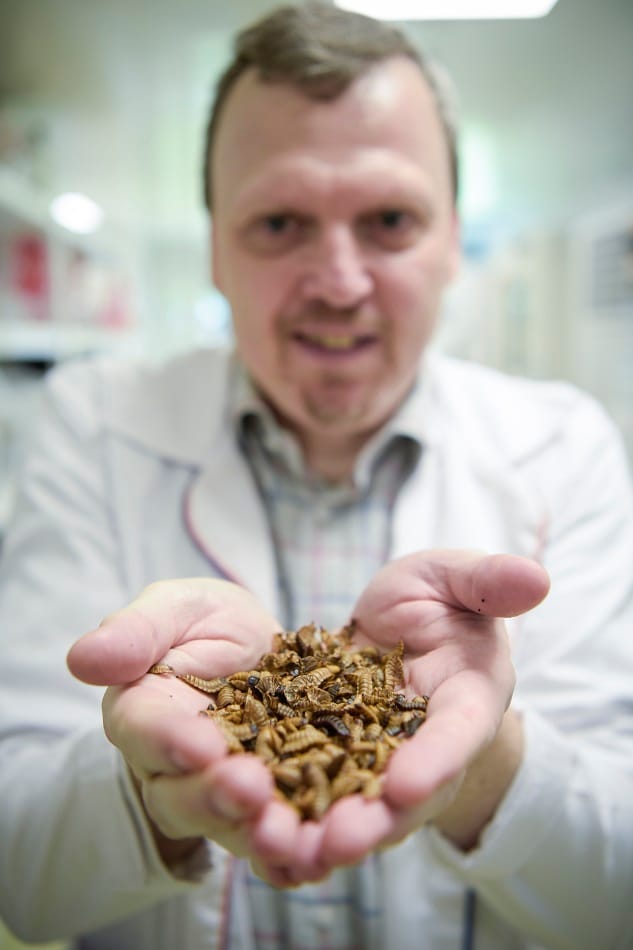
Prof Rudolf Meier with a handful of black soldier flie larvae.
While small in size, the flies have appetites that can rival competitive eaters. As maggots, the flies feed on organic waste. When they enter the pupa stage, they are so rich in nutrients they make perfect feed for fish, poultry and pigs. This means food waste is recycled as animal feed instead of being thrown away.
With support from Temasek Foundation Ecosperity, which funds programmes that champion sustainability or develop solutions to improve liveability, the two groups are hoping to turn their respective research and hard work into reality that can make a difference in food security.
In a room in NUS’ insectary, Prof Rudolf Meier has been rearing and studying the flies for about three years. In a netted cage, the flies roam around, mate and lay eggs in crevices found in cardboard pieces. The eggs are then deposited in boxes filled with food waste – anything from waffles to fried beehoon.
When hatched, the maggots feed voraciously on the waste. After they become pupae, they crawl out of the boxes and fall into a tray, ready for mating or to be harvested.
Prof Meier is working on breeding a type of fly that is particularly suitable for rearing in a compact, space-efficient vertical system. The flies will be fed with food waste from canteens in the university campus. They will then be converted as animal feed or plant fertilisers.
There is a lot of potential with insect farming. I have about 10 more years to retirement, and I want to use the time to develop an efficient food recycling system for Singapore.
Prof Rudolf Meier
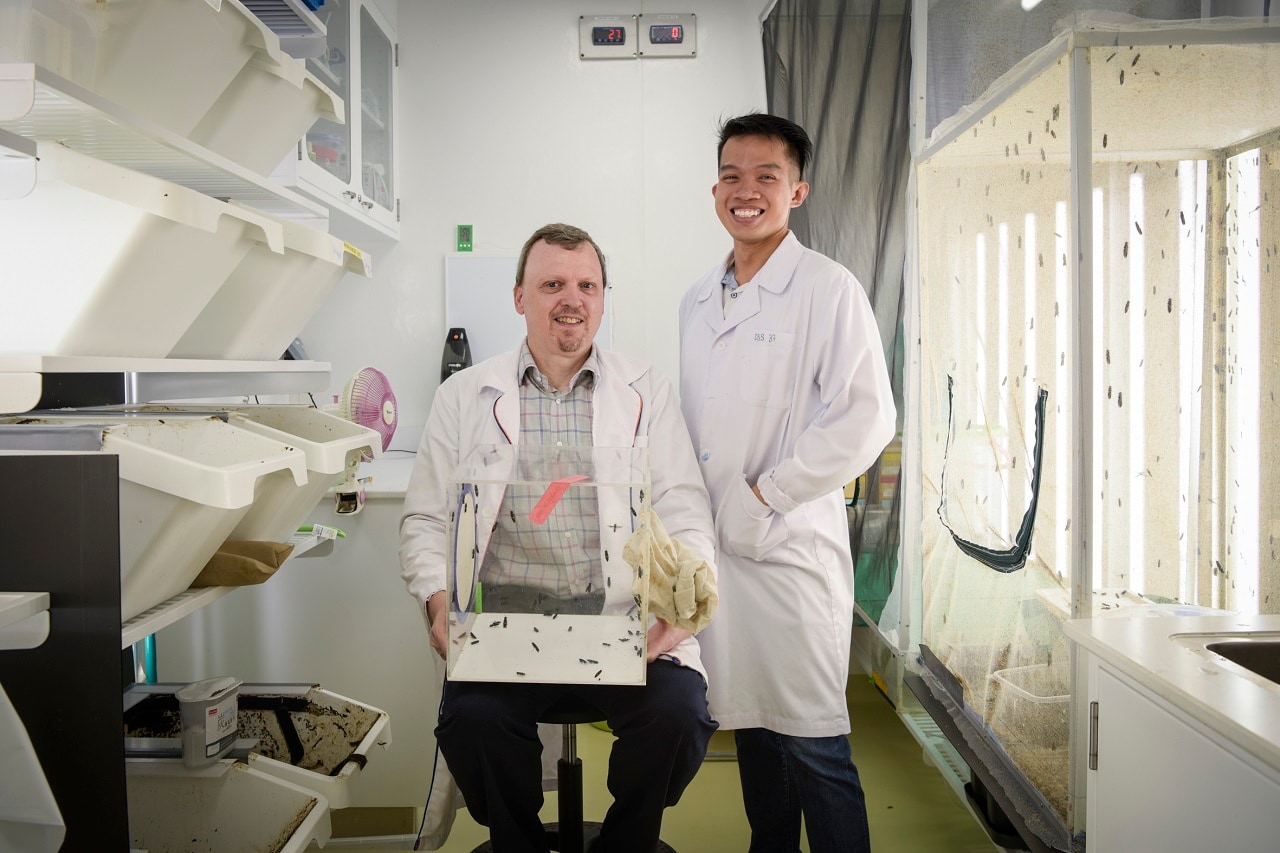
Prof Rudolf Meier and scientific officer, Foo Mao Sheng, in their laboratory located at NUS.
About 5 km away, a group of urban farmers, who started Citizen Farm on a plot of land in Jalan Penjara, are also working with flies (through their insect farming partner Insectta) – and more.
Citizen Farm is a closed-loop urban farming model that is breeding black soldier flies, growing mushrooms with coffee grounds and untreated saw dust, and cultivating kale and swiss chard with hydroponics. These three functions are now done separately and in different areas spread out across the compound.
The group is working on combining the three functions into one single unit. Mr Darren Ho, 28, Head of Citizen Farm, envisions the end product as a three-storey unit with the black soldier flies at the top, hydroponics on the second level and a chamber for mushrooms to fruit at the bottom.
Waste enters the first and third level to feed the flies and to grow mushrooms. At the second and third level, the group is experimenting with gas exchange to optimise growth of the plants and fungi. The hydroponics will produce oxygen when there is light, while the mushrooms’ fruiting chamber will release more carbon dioxide than oxygen.
“My dream is to have these 3-in-1 modules all around the city in residential areas. Then we can grow mushrooms and vegetables in the unit and sell it at a wet market nearby. Food waste from hawker centres can also be easily recycled,” said Mr Ho.
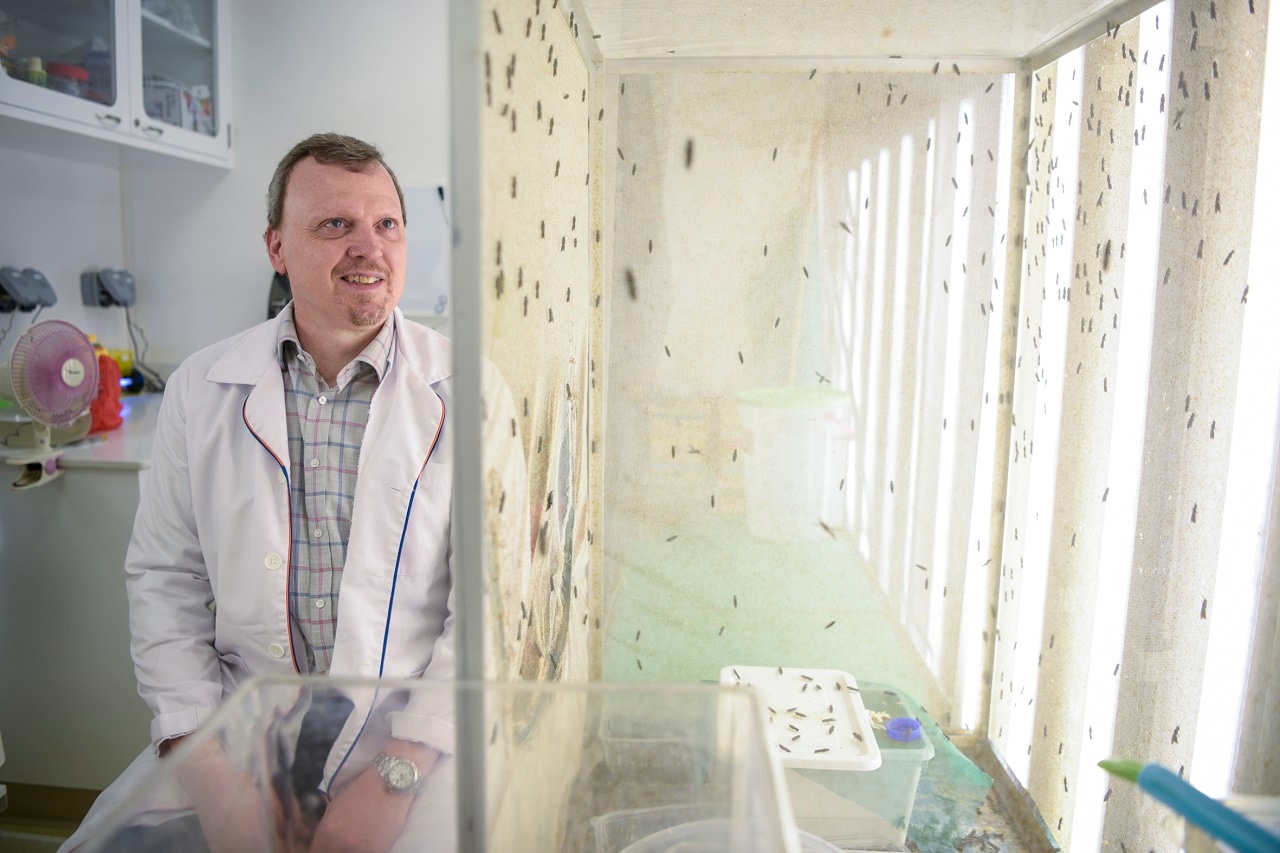
Prof Rudolf Meier hopes to tackle the issue of food waste with black soldier flies.
Temasek Foundation Ecosperity (TFE) funds programmes that champion sustainability or develop solutions to improve liveability. TFE is part of our family of six Foundations supporting various causes and needs in our community. More about them here.

